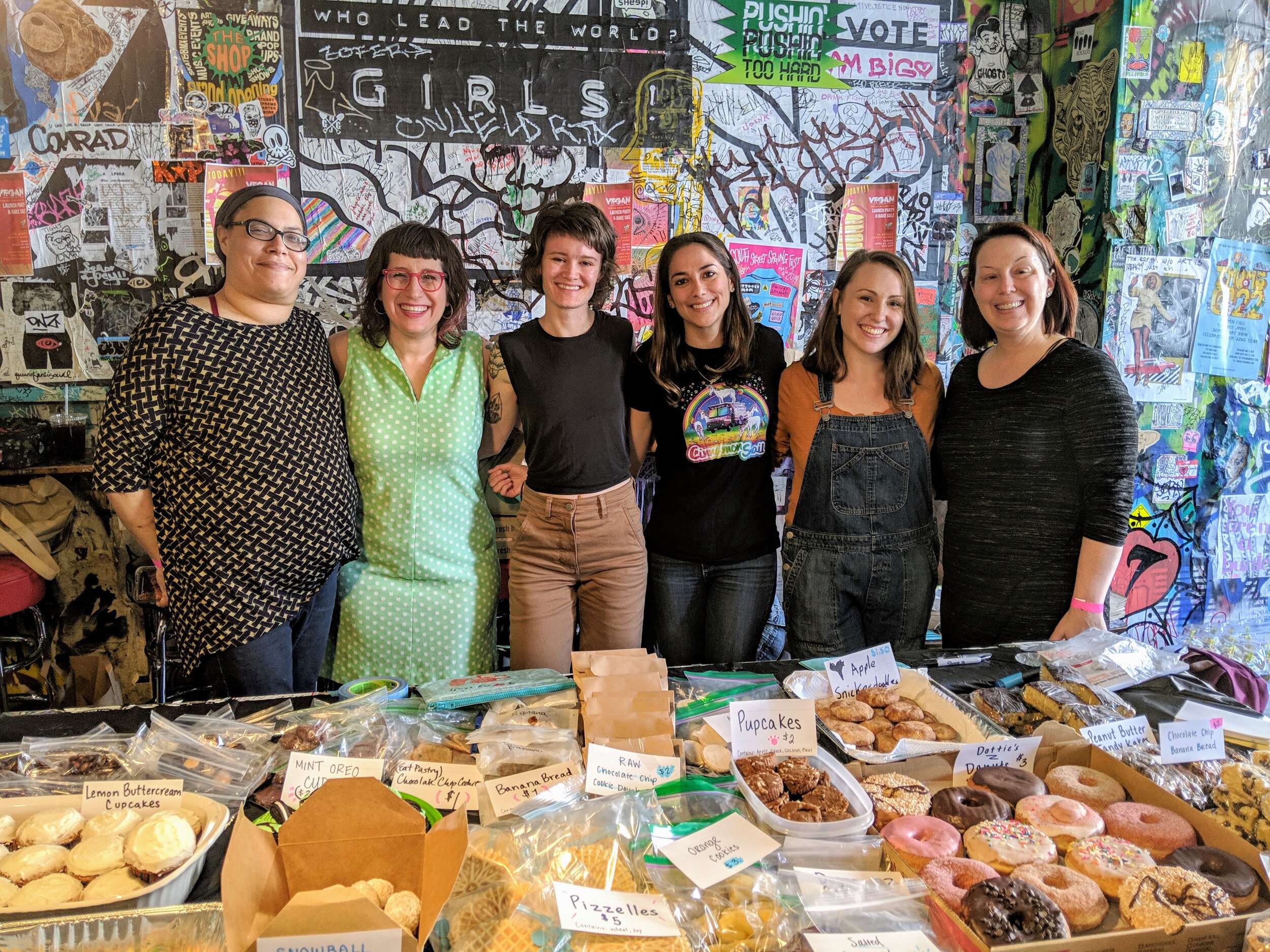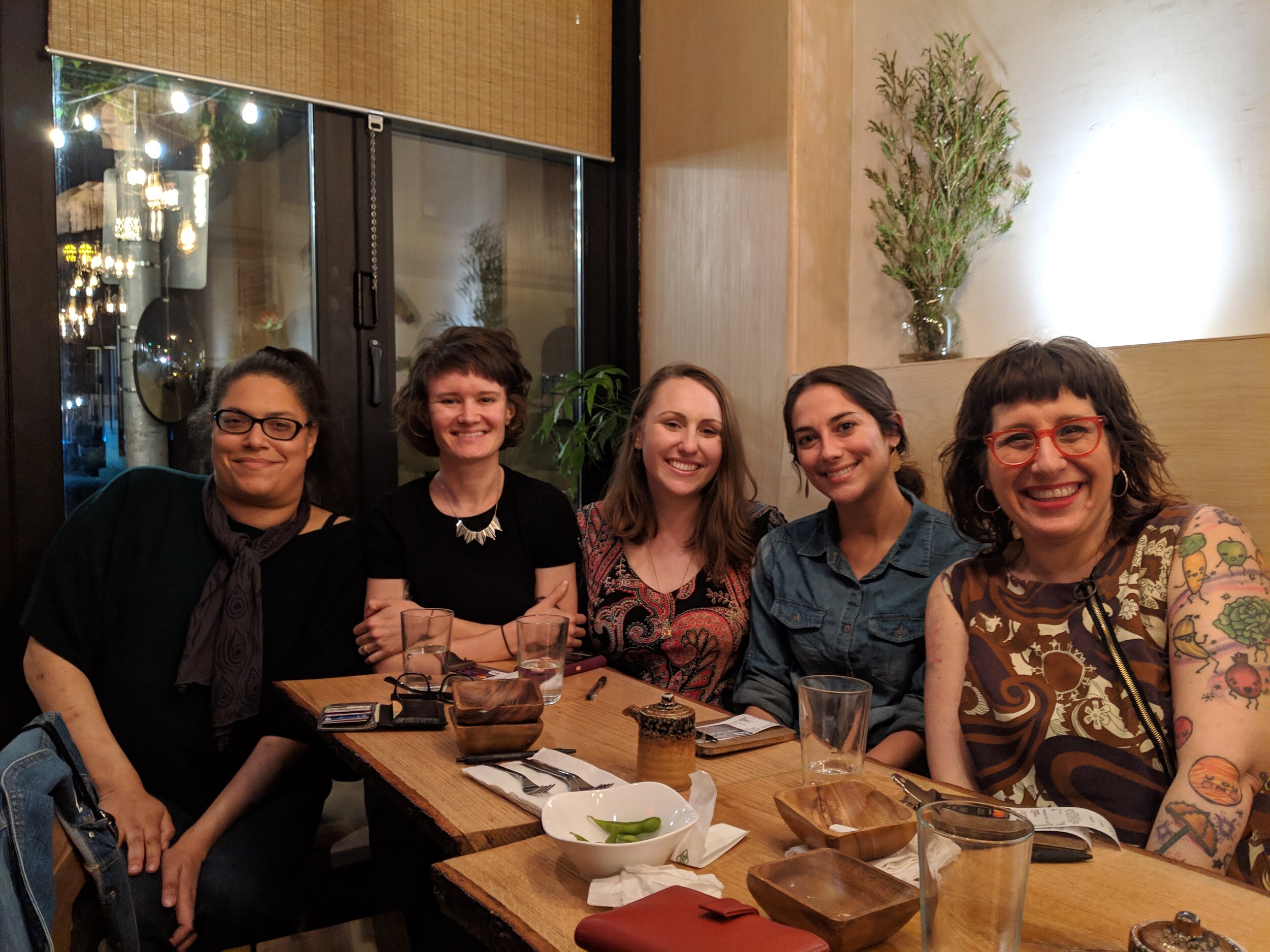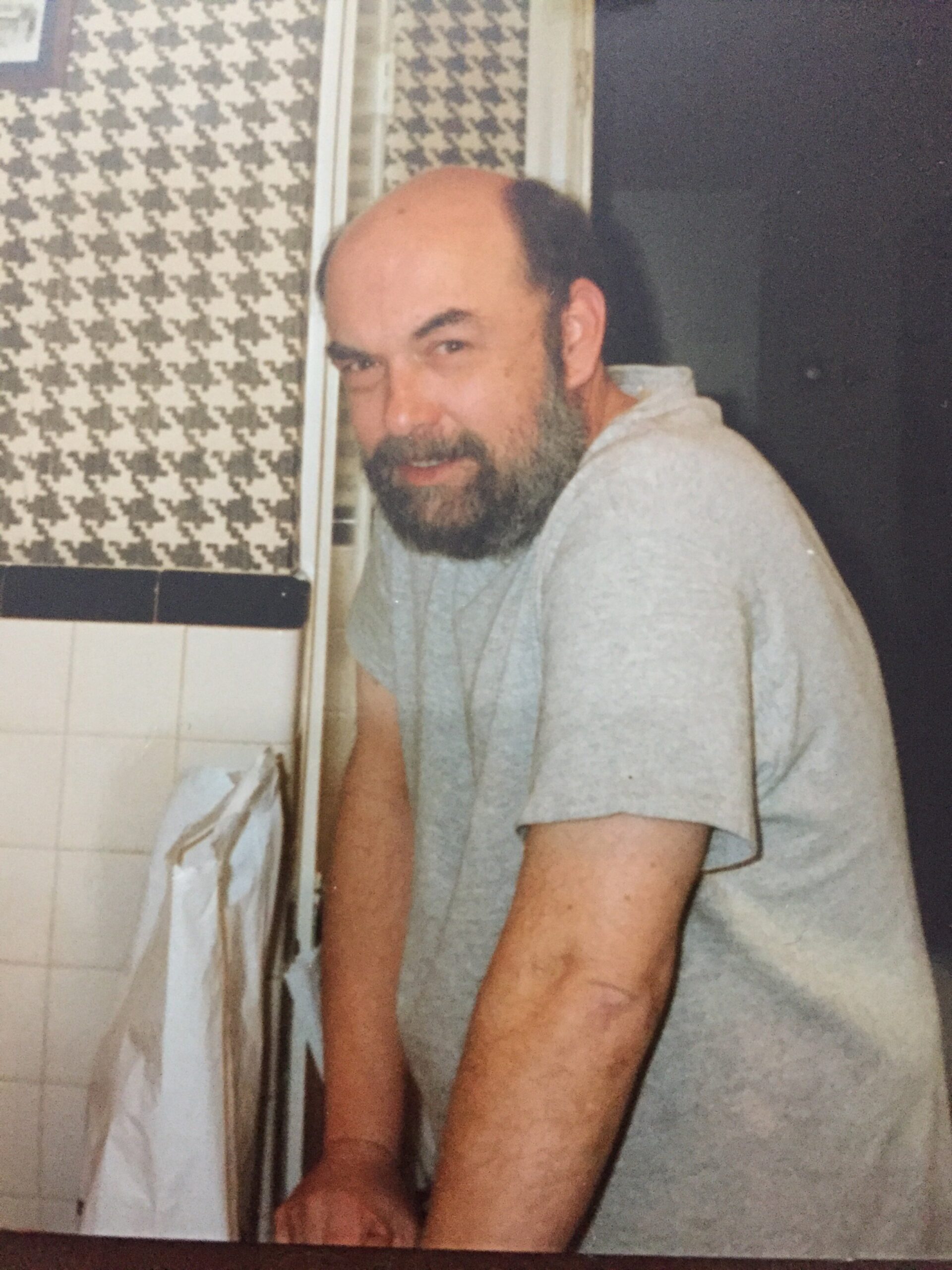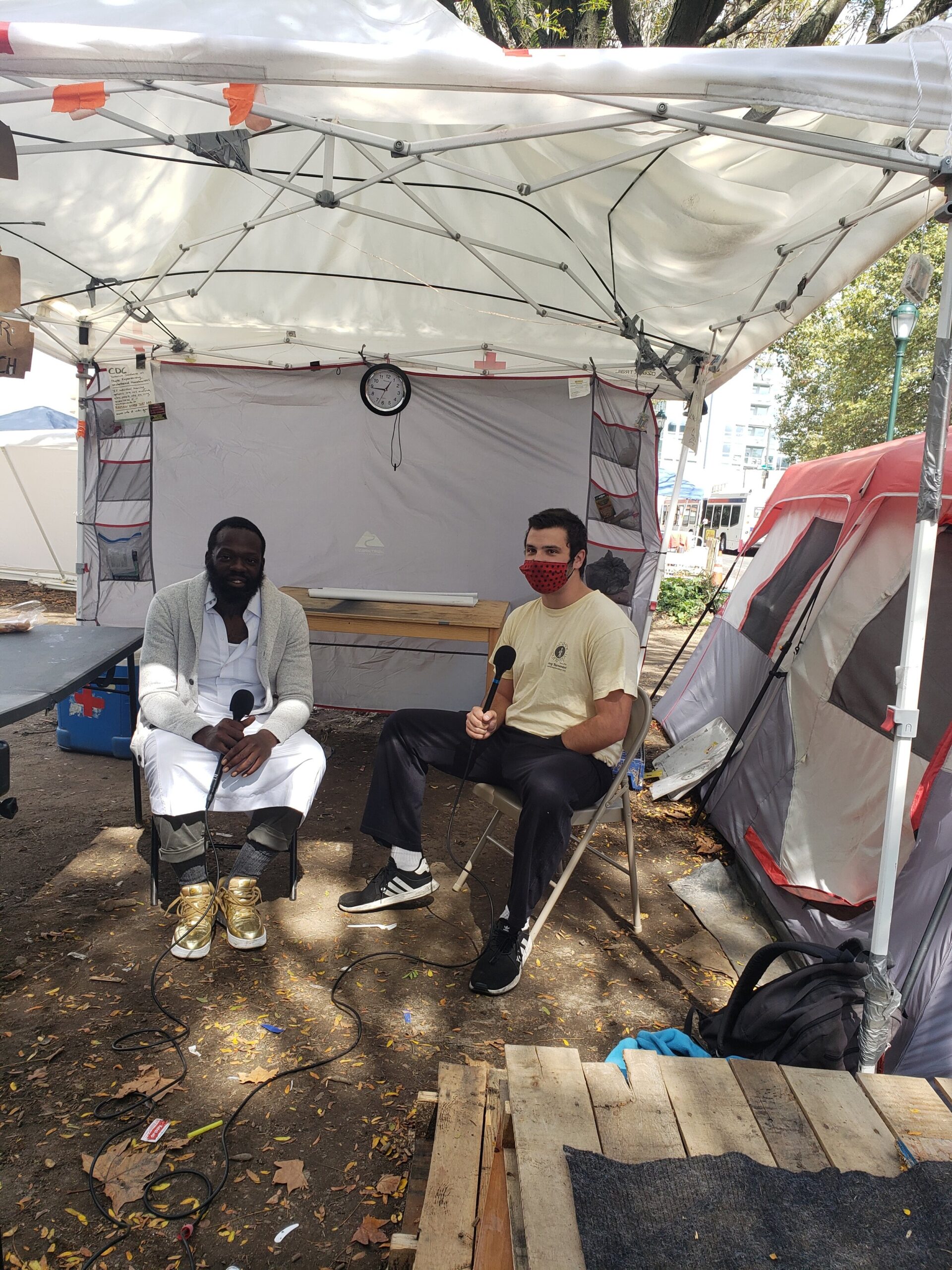A whole week dedicated to vegan food? Count us in. This Sunday, October 18, marks the start of Philadelphia Vegan Restaurant Week — seven whole days of jam-packed vegan platters and desserts.
Founded by Nicole Koedyker, PVRW began as an idea to promote more vegan experimentation in local restaurants. Koedyker and several of her now-colleagues believed the traditional restaurant week wasn’t friendly for fellow veg heads.
Now, after four years and successful seasons featuring dozens of businesses in the 215, PVRW has shifted gears. As a nonprofit, the group supports local animal-based charities by donating proceeds from its vegan cuisine celebration. However, when COVID-19 dismantled connections with the restaurant industry, the PVRW team had to think outside the box. This year’s fall PVRW will focus on takeout opportunities and platters to ensure safe interactions among restaurant staff and participants.
Grid spoke with Koedyker, and other PVRW organizers, Carmella Lanni and Breanne Needles, about the origins of PVRW, veganism’s multifaceted attributes and how COVID-19 has changed the event.
PVRW is this week — check out a full list of restaurants and menus here.
This interview has been edited for length, clarity, and style.

Tell us a bit about yourselves. How did you get to where you are now?
Koedyker: I’ve been vegan for about eight years. I just love to eat and I love Philadelphia, and I wanted to bring those two things together. The idea for a vegan restaurant week came up about three or four years ago, when a lot of us got tired of going to conventional restaurant weeks. As vegans, we found we could maybe eat the appetizer and definitely not the dessert on menus, so paying a fixed price just didn’t make sense. But, we still wanted to go with our friends and explore new restaurants and everything. I reached out to my friends on Facebook and asked if there were other vegans in my network who wanted to start a vegan restaurant week.
Lanni: I responded to Nicole’s call to help make a vegan restaurant week because it has been very frustrating when there’s free events in the city, but there’s not much for us vegans out there. And it’s been great for us to not only connect with restaurants but connect with the community at large so they know vegan food is good. There’s more to veganism beyond what’s on our plate.
Needles: I’ve been vegan for about five years. I, too, answered the call from Nicole. I was fairly new to Philadelphia at the time — I wanted to make friends… I especially wanted to make vegan friends. I handle the press releases and do most of the media contact, so I saw an opportunity in PVRW, as my background is in writing.
Why is veganism important to you? How does it define you and/or your environment?
Lanni: I’ve been vegan almost 11 years. I initially went vegetarian due to health reasons. While vegetarian, I definitely learned about issues relating to factory farming, animal abuse and welfare rights. I challenged myself and my partner to go vegan for a week and it just kinda stuck. It’s become so ingrained in my life — I’m actually a certified vegan lifestyle coach. I help people go vegan. I left the IT and marketing world to open up my own [vegan] business, V Marks The Shop, a vegan convenience store in South Philly.
Needles: I agree with that. I went vegan after finding out about all the horrors of agriculture and how animals are treated, so that was definitely my first “huh moment” of “I have to stop eating animals and animal products.” It has completely extended to every aspect of my life. I try not to waste as much, I try to buy cruelty-free products and become a completely compassionate person. We link Restaurant Week with the fundraisers we do. In the past, we’ve raised money for Misfit Manor and Peak Advocacy Network. We are also hoping for this year to expand to human rights organizations, and try to just get people to make this connection: this isn’t just a diet, this is about compassion in every aspect of your life.
Koedyker: I’ve been vegan for about eight years. I started actually with a Veganuary pledge — a one-month pledge to go vegan in January. I read a lot of books and watched a lot of movies. But, at the end of the month, I went back to eating meat and cheese, which was shocking. I found myself feeling really guilty about everything that I ate. I dug a little deeper, and went, “Oh, it’s because I learned all about the terrible things that happen in factory farming, slaughterhouses, the welfare of the workers and the detriments of the environment.” This guilt that I carried around made me make the switch that I needed. I made that connection between what I was eating and how I was feeling, and I’ve been vegan ever since.
As you all said, PVRW was founded because there was a missing component of existing restaurant week events. How has your organization evolved since its launch?
Koedyker: Initially, it was a week for us to get a bunch of restaurants and they gather a bunch of vegan stuff they wouldn’t usually offer or to create vegan specials and make them really fun and interesting. It’s transformed into a showcase for vegans and non-vegans about the variety of restaurants in Philadelphia that are veg-friendly. In our second year, we had a steakhouse we never would have expected to participate. They went all out and people were really impressed. The mission of PVRW is to create exposure for veganism in Philadelphia to already-existing-vegans or give those on the fence about veganism a chance to indulge for a week or two out of the year.
Lanni: PVRW is becoming a travel destination for folks, especially among vegans. I had quite a few friends that actually traveled in. One came from Minneapolis and others from Los Angeles and New York, because they heard about PVRW. They wanted the opportunity to hit up as many places as possible.
What can citizens and visitors expect for this season’s PVRW, especially with the looming pandemic?
Koedyker: Because of the pandemic… it’s changed a little bit. This time around, we’re encouraging people to take out rather than dine in because of COVID-19. We’re asking the restaurants that are participating — which is a smaller group than usual — to push takeout. Most of the all of the businesses that are participating this time are veterans. We wanted to test out $50 and $80 platters with them, so we can eventually offer it to more restaurants in the spring, if we’re still stuck at home. We’ve asked the restaurants to really jazz it up and make it about their restaurant and personality. We have a Cajun Night, we have a Mexican Family Feast, we have a Chino-Latino platter. We want people to try new restaurants, stay at home and enjoy the same things that you would have done in a regular non-COVID restaurant — but from afar. We picked those prices because we wanted to offer the restaurants the chance to build in tips for their staff. Instead of fundraising this time around, we’re having all the restaurants keep the proceeds that they make. We really want to show the restaurants that we can’t go a year without you—we can’t go forever without you.
How did your team brainstorm and cope with COVID-19?
Koedyker: We have a text chain that we use constantly to send our meals and random things, and that was no exception during COVID. And that was a good way to segue into the new format of PVRW and brainstorm how we could make it different. Making people go into a restaurant didn’t seem feasible. We were supposed to have a spring PVRW, but instead we put out the list of all PVRW participants created in a Google Doc to share if they were open during the beginning of the pandemic or not. We really missed seeing our restaurants and talking with them and being able to support them.
Needles: We all really enjoy doing this. It is such a good outlet for me, and we don’t get paid to do this. We don’t make any money off of this. So it really is just our own time spent on this. After the spring, someone just brought up, “Hey, we should really try to do something in the fall because I can’t go a whole year without this.” And we’re all just totally in agreement — whatever we can do, let’s do it if we can. As long as it will help the restaurants, that was our big thing. We reached out to the restaurants and saw if they thought this would be helpful because we don’t want to put anybody out. We didn’t want anybody to feel like they were overburdened during this time.
Some citizens believe that going to restaurants — whether inside or outside — is still irresponsible. In order to ensure safety measures, PVRW is pushing takeout and delivery. Why is that important for an organization to support, especially one based on visiting restaurants?
Koedyker: There are actually a couple of vegan restaurants that aren’t participating in PVRW this time around that have said they’re not doing indoor dining because it’s not safe and that the takeout and outdoor seating models work for them. We’re here to support that and make sure all of the workers feel safe and are treated with respect.
Have you noticed an increase in veganism or popularity of vegan cuisine during the pandemic? Why do you think that is and how does that make you feel?
Lanni: Yes, there’s been an increase in demand for plant-based or vegan products since the pandemic began, especially in the earlier months due to food shortages. There was a tremendous spike in tofu. It was hard for us to get it; conventional groceries couldn’t get tofu, and I was only fully stocked because I quadrupled my order. With the pandemic, a lot of people took a greater interest in their health and what they were consuming, especially when news broke about issues in the meat industry. People were trying to understand alternative protein and feeling somewhat safer doing that route than what they were used to doing. That translated into when they were comfortable, to start going back to a restaurant, for takeout or delivery, they were changing their usual menu selections and going for a decrease in animal products. It’s great, but it took a pandemic for that to happen. That’s not the way I would like people to adopt a plant-based diet or have their introduction to veganism, but seeing people stick with it now is awesome.
Do you have any advice for PVRW participants or foodies like yourself?
Needles: I’m stuck at home, sort of feeling like everything around me is burning and I can’t do anything. Ordering out at restaurants is sort of my way to contribute to the community a little bit. My partner and I try to order from a POC-owned restaurant every week. We’ve been trying to change it up a little bit. If you’re going out for PVRW or if you’re going to order in, just be sure you’re tipping your servers or your drivers or anybody, because they really need it right now.
Lanni: The pandmeic is really hard on the workers, but it’s also hard on the ethical business owner. I would just ask for people to be mindful and patient with businesses. They’re all trying their best and they want to be safe, and they’re scared right now. With us doing a restaurant week that promotes takeout, it will put the restaurant and their teams at ease as much as possible.
To engage participants and ensure as much normalcy as possible, PVRW is hosting several virtual events throughout the week, including film screenings with the Philadelphia Asian American Film Festival and a quizzo night. For a full list of events, check out their Instagram.










